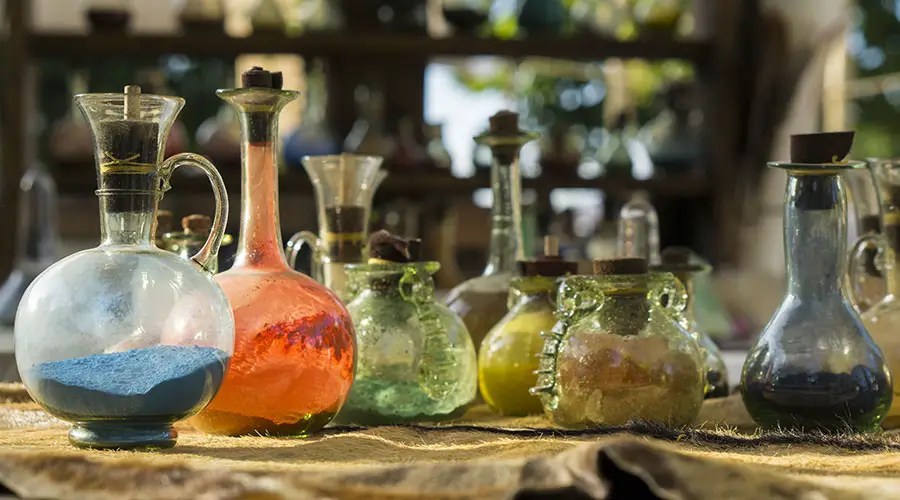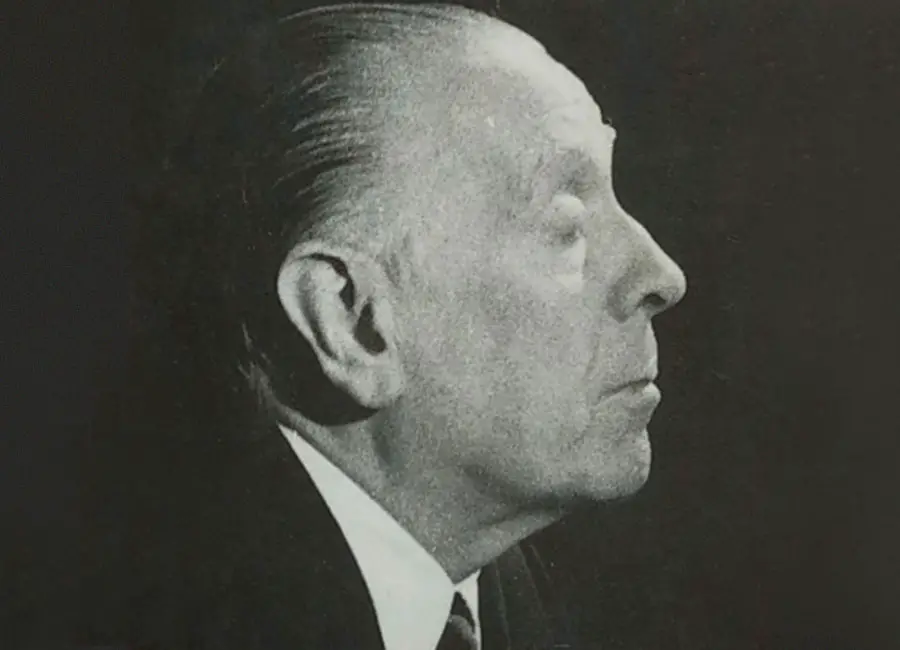Alchemy is an ancient practice that in modern times garners a lot of attention. But is alchemy still practiced today in modern times?
Alchemy is considered impossible by modern science, but is still practiced amongst revivalist spiritual movements. Alchemical thought forms the basis of modern chemistry, and is often portrayed in works of fiction. Alchemy is sometimes used as a metaphor for emotional and personal transformation.
Although alchemy is far less practiced today than it has been in other historical times, there are serious practitioners doing alchemy to this day, with some people even claiming secret successful results.

The Modern View of Alchemy
According to modern scientific thinking, Alchemy has been shown to be not possible because its goals, such as the transmutation of base metals into gold and the creation of a universal panacea, were based on a flawed understanding of the nature of matter and the properties of elements.
Additionally, advances in medicine showed that there was no single cure-all for all illnesses. As a result, alchemy was discredited as a pseudoscience and its goals and practices were largely abandoned.
Revival in Ancient Wisdom Traditions
History shows that interest in ancient philosophy such as alchemy waxes and wanes over time. For example, during the Renaissance, there was a renewed interest in ancient Greece, which had existed around 1200 years earlier.
The influence of Ancient Greece on the Renaissance was significant and far-reaching, and the rediscovery and study of Greek texts was a major driving force behind the Renaissance. The Renaissance was marked by a humanistic movement that emphasized individualism, creativity, and the importance of human potential, which was inspired by the Ancient Greek emphasis on the value of the individual and the importance of human reason and intellect.
The revival of classical themes and motifs in art and architecture, as well as the ideas of the Ancient Greek philosophers, such as Aristotle and Plato, had a major impact on the intellectual and philosophical debates of the Renaissance. Overall, the Ancient Greek civilization was a major source of inspiration for the Renaissance and helped lay the foundations for the modern Western world. Read more about the philosophical schools of ancient Greece and their contributions here.
Similarly, ancient Pagan beliefs have waxed and waned, and in recent time seen a revival in the form of Wicca, and other Neopaganism, and earth-centered spirituality, which also draw upon ancient beliefs and practices to create new spiritual systems.
In ancient times, paganism was widespread in many cultures, including the Greeks, Romans, Egyptians, and others. During the medieval period, pagan beliefs and practices persisted in some areas, particularly in rural communities, but were suppressed in many parts of Europe due to the spread of Christianity.
In more recent times, there has been a revival of paganism and interest in pagan beliefs and practices. This has been particularly evident in the rise of the neopagan movement, which emerged in the 20th century and has since grown to include a wide range of spiritual practices and beliefs.
Wicca is considered a revival of older beliefs because it draws upon various elements from ancient pagan traditions, such as nature worship, the celebration of seasonal cycles, and the veneration of goddesses and gods. Wicca incorporates these beliefs and practices into a modern spiritual framework that emphasizes personal experience, intuition, and individual expression.

Regardless of its origins, Wicca is widely regarded as a revival of older spiritual traditions and has become one of the most widely recognized forms of contemporary paganism. It has inspired many other forms of paganism.
Like ancient Greek and ancient Pagan ideas, interest in alchemy and Hermeticism, the philosophical system in which it is a part of, also waxes and wanes. However, as recently as 1920 an alchemist in France was receiving great interest.
The Alchemy of Fulcanelli
An alchemist named Fulcanelli received public attention when him and his pupil had apparently turned a small amount of lead into gold. Fulcanelli is a mysterious figure in the history of alchemy who was active in France in the early 20th century. The identity of Fulcanelli is unknown and his true name, background, and motives remain a mystery. He is best known for his two books on alchemy, “Le Mystère des Cathédrales” and “Les Demeures Philosophales,” which were published in France in the 1920s and 1930s. These books explore the symbolism of alchemical texts and architecture, particularly Gothic cathedrals, and are considered classic works in the field of esoteric studies.

Despite the popularity of Fulcanelli’s books, his true identity and the authenticity of his work remain a matter of debate among scholars and students of alchemy.
The Golden Age of Islam
While alchemy is still practiced amongst modern revivalist movements, who are usually mostly interested in the spiritual, ceremonial, and aesthetic elements of alchemy, it is certainly not at its height of popularity. When people think of alchemists in history, they usually think of either the Golden Age of Islam, or the Medieval and Renaissance times in Europe.
During the Golden Age of Islam, which lasted from the 8th to the 14th centuries, alchemy played a significant role in the cultural and scientific advancements of the Islamic world. This was a time of great intellectual and cultural achievement, and alchemy was considered an important field of study, alongside other sciences such as mathematics, astronomy, and medicine. Muslim alchemists made important contributions to the field, building on the knowledge of their predecessors in ancient Greece and Egypt. They translated works from Greek, Roman, and Egyptian alchemists into Arabic, preserving and expanding on this knowledge. Muslim alchemists also made their own original contributions, including the development of new methods for refining metals and the discovery of new chemical substances. Overall, the Golden Age of Islam was a period of significant growth and development for the field of alchemy, and Muslim alchemists helped lay the foundations for later developments in chemistry. You can read more about the Golden Age of Islam here.
Medieval and Renaissance Alchemy in Europe
Alchemy played a significant role in the cultural and scientific advancements of Europe during both the Medieval period and the Renaissance. During the Medieval period, alchemy was considered an important field of study, alongside other sciences such as mathematics, astronomy, and medicine. European alchemists were influenced by the works of Muslim alchemists from the Golden Age of Islam, and they made important contributions to the field, including the development of new methods for refining metals and the discovery of new chemical substances.
In the Renaissance, the revival of classical learning and the rediscovery of ancient texts led to a renewed interest in alchemy. This period saw a resurgence of alchemical thought, and alchemists of the time attempted to reconcile the ancient and medieval alchemical traditions with the emerging modern sciences. The famous alchemist Paracelsus, for example, combined alchemical, philosophical, and medical knowledge to develop new theories and practices.
Alchemy was also closely associated with the development of art and literature during the Renaissance, as many artists and writers of the time, such as William Shakespeare and John Dee, incorporated alchemical symbols and themes into their work. Overall, the Medieval and Renaissance periods were significant in the development of alchemy in Europe, and European alchemists of the time made important contributions to the field and helped lay the foundations for later developments in chemistry. Read more about the magick of John Dee here.
The influence of Alchemy on Chemistry
Another way in which Alchemy is practiced today is as the precursor to modern chemistry. While alchemy was originally concerned with the pursuit of the philosopher’s stone and the transmutation of base metals into gold, it also involved the study of chemical reactions and the preparation of various substances. This knowledge formed the basis for many of the earliest experiments in chemistry.
Alchemists developed early techniques for distillation, sublimation, and filtration, which were later used in the production of various chemicals and medicines. They also discovered new substances, such as mercury and sulfur, and developed theories about the nature of matter that laid the foundations for modern atomic theory.

Furthermore, alchemists were the first to attempt to systematically classify and describe the properties of chemical substances. This work helped to establish the foundations of modern chemistry and paved the way for the development of modern analytical techniques and chemical reactions.
In short, while alchemy as a practice may not have been successful in its pursuit of the philosopher’s stone, it did make important contributions to the field of chemistry and helped lay the foundations for modern chemical science.
Modern Uses of the Word Alchemy
The word alchemy has started being used in different ways that it traditionally has been, and now is often used to describe changes in emotions, thoughts, relationships, and life experiences.
“Alchemy” is sometimes used metaphorically to describe a process of transforming negative emotions or experiences into something positive and meaningful. In this context, alchemy is seen as a type of personal transformation, where an individual takes their challenges and hardships and uses them to create growth and positive change in their lives.
This idea of emotional alchemy suggests that, just as the alchemists of old transformed base metals into gold, individuals can transform their negative emotions into something valuable and life-affirming. This might involve facing one’s fears and insecurities, examining past traumas, or working through difficult emotions in a therapeutic or spiritual context.
In this sense, alchemy is often seen as a tool for personal growth and development, allowing individuals to turn their challenges into opportunities for growth and transformation. This idea has been popularized in various forms of self-help and spiritual literature, and is seen as a way to live a more fulfilling and meaningful life.
Alchemy in Popular Culture
While the actual practice of alchemy seems to be not widespread at present time, general interest in the topic, as well as portrayal in popular culture is high.
Alchemy has been depicted in a variety of forms in recent popular culture. For example, it is a common theme in fantasy and science fiction literature, and has been featured in works such as J.K. Rowling’s “Harry Potter” series. Alchemy is also depicted in various film and television productions, including the anime “Full Metal Alchemist,” the video game series “Kingdom Hearts,” and the movie “The Sorcerer’s Apprentice.”
Additionally, it is a popular theme in comics and graphic novels, such as the manga “Soul Eater” and the graphic novel “The Sandman.” In video games, alchemy has been portrayed in games such as “Elder Scrolls V: Skyrim,” “Dragon Quest VIII,” and “Final Fantasy.”
These depictions often emphasize alchemy’s association with transformation and transmutation and portray the practice as a mystical and magical art.
Recommended Reading
If you want to continue exploring this subject more deeply, you can see which books I recommend by clicking here.
